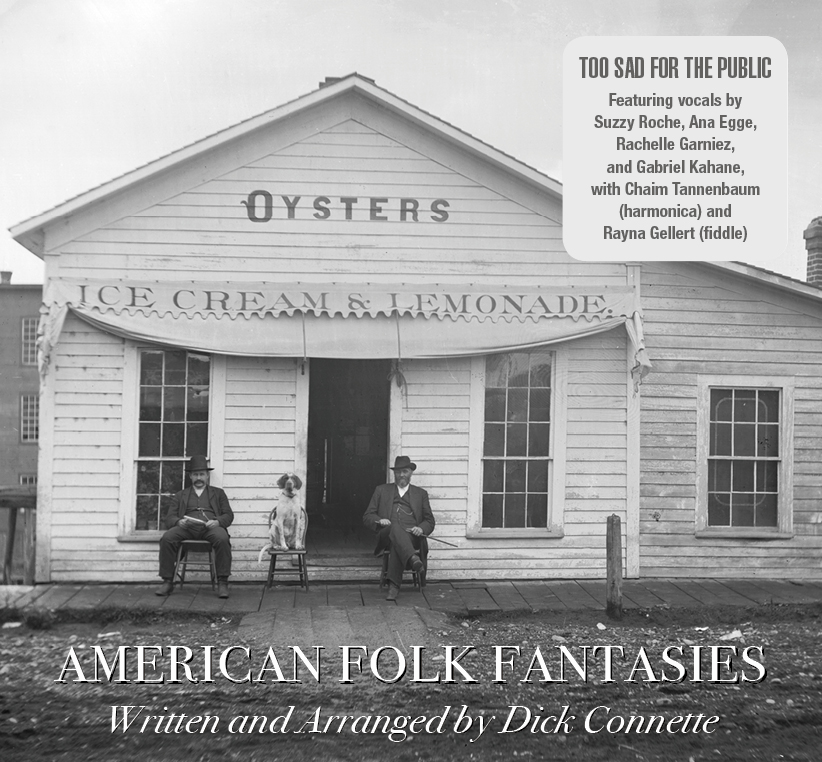This is the new project from New York City artist and Grammy-winning producer Dick Connette, who has previously released four acclaimed albums based on American folk and popular traditions under the name Last Forever. This diverse music either continues or expands on that concept, employing four different lead singers and an ensemble of 17 musicians. Mashed up in the mix is Delta blues, folk music, jazz of Jaco Pastorius, go-go music of Chuck Brown, and even a creative combination of Van Morrison’s “Brown Eyed Girl” together with “Sweet Thing,” featuring the guitar of Astral Weeks standout, Jay Berliner.
Yes, the group name is a bit odd and belies much of the music. The story associated with it stems from a tune on the album called “Old Alabama” taken from bluesman William Moore’s 1928 tune, “Old Country Rock.” It consists of bluesy finger-picking behind a series of spoken imperatives. While many of those spoken passages were conventionally predictable, out of nowhere Moore exclaimed “Too sad, I mean, too sad for the public.” This, and many other interesting stories and anecdotes are included in musicologist Connette’s liner notes.
The album devotes most of its playing time to ’80s go-go music star, the D.C.-based Chuck Brown, who made a lasting impression on Connette when he played NYC’s Tramps in the ’80s. “Chuck Baby” runs for over 12 minutes, and you hear references to it in the opening track, “Prelude” as well.
Pastorius’ “Liberty City” is rendered in three parts, serving as interludes between the vocal pieces. Connette does not sing but defers to Suzzy Roche, Ana Egge, Rachelle Garniez, and Gabriel Kahane. Egge does both “Old Alabama” and the Van Morrison combo, “Young Loves to Love” while Roche takes lead on three of the eight vocal tunes. Strong instrumental contributions come from Chaim Tannenbaum (harmonica) and Rayna Gellert(fiddle).
The music is at times entrancing and dreamlike, but it keeps changing to the point where “Chuck Baby” may get you up and dancing. The Harvard-educated Connette has been writing music based on American folk traditions since 1992 but his palette that includes his own recording studio, label, work with choreographers, video and film makers, and theater artists. There’s tons of influences in his approach which, if you’re like me, will motivate you to not only go for repeated listens here but to seek out his catalog. Connette has a vision of American music that runs beyond the common genres into 20th Century classical, vaudeville, and even minstrelsy. Best yet, this is only Volume 1.
—Jim Hynes

